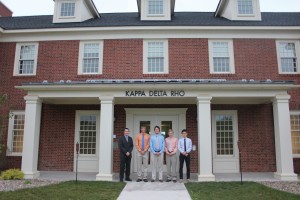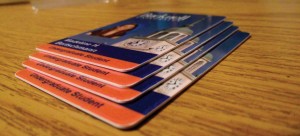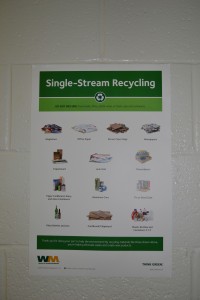El McCabe
Contributing Writer
First-year students are adjusting to campus life and are beginning to explore opportunities outside of the classroom. Over 35 first-years recently participated in Bucknell Student Government (BSG) class of 2016 elections. Votes were cast yesterday on the University’s new Involvement (IN) Network.
The BSG Executive Board, made up of President Dotun Odewale ’13, Vice President of Operations Loren Jablon ’15, Vice President of Finance Mo Karam ’13, and Vice President of Administration Clinton Kittrell ’14 strategically set up a booth at Activities Unlimited, sent out several Message Center posts and wrote an e-mail that was sent to all first-years explaining BSG’s purpose and influence on campus to publicize the elections in an effort to encourage students to run. All interested candidates were then required to attend a mandatory campaigns and guidelines meeting on Aug. 30 where they learned more about the structure of BSG, its goals and some of its most recent accomplishments.
“I look forward to a great campaign, election, and year ahead with the first year Congress,” Associate Dean of Students of Campus Activities and BSG adviser Kari Conrad said.
“I think 2016 has really demonstrated its political passion. There is significant interest in all of the first-year officer positions as well as BSG in general,” she said.
In the 2012-2013 election there were10 candidates for president, nine for vice president and six for secretary/treasurer. With such fierce competition, candidate for representative Ben Miller ’16 stressed the importance of informed voting and participation of the entire first-year class for input on future decisions.
“I think it’s important that the whole freshman class gets involved in the election and really gets to know the person behind the name they are voting for,” Miller said.
Because of campaign budgets being limited to $50, first-years utilized creative means of campaigning. Tactics included handing out cupcakes, posts in the Facebook group concerning credentials, witty slogans and videos of constituents’ showing support for their favorite candidates. These tactics helped put candidates’ names on their fellow students’ minds.
Candidate for vice president Julianne Pearson ’16 has joined many on campus groups. A member of ACE, C.A.L.V.I.N & H.O.B.B.E.S, Concert Chorale, the Offbeats and CCM,Pearson decided to run to represent all these groups and more.
“So far at Bucknell I have been given many opportunities to get involved that I have taken advantage of. I plan to, if elected, remain involved in my various activities and advocate for all clubs/organizations on campus,” Pearson said.





